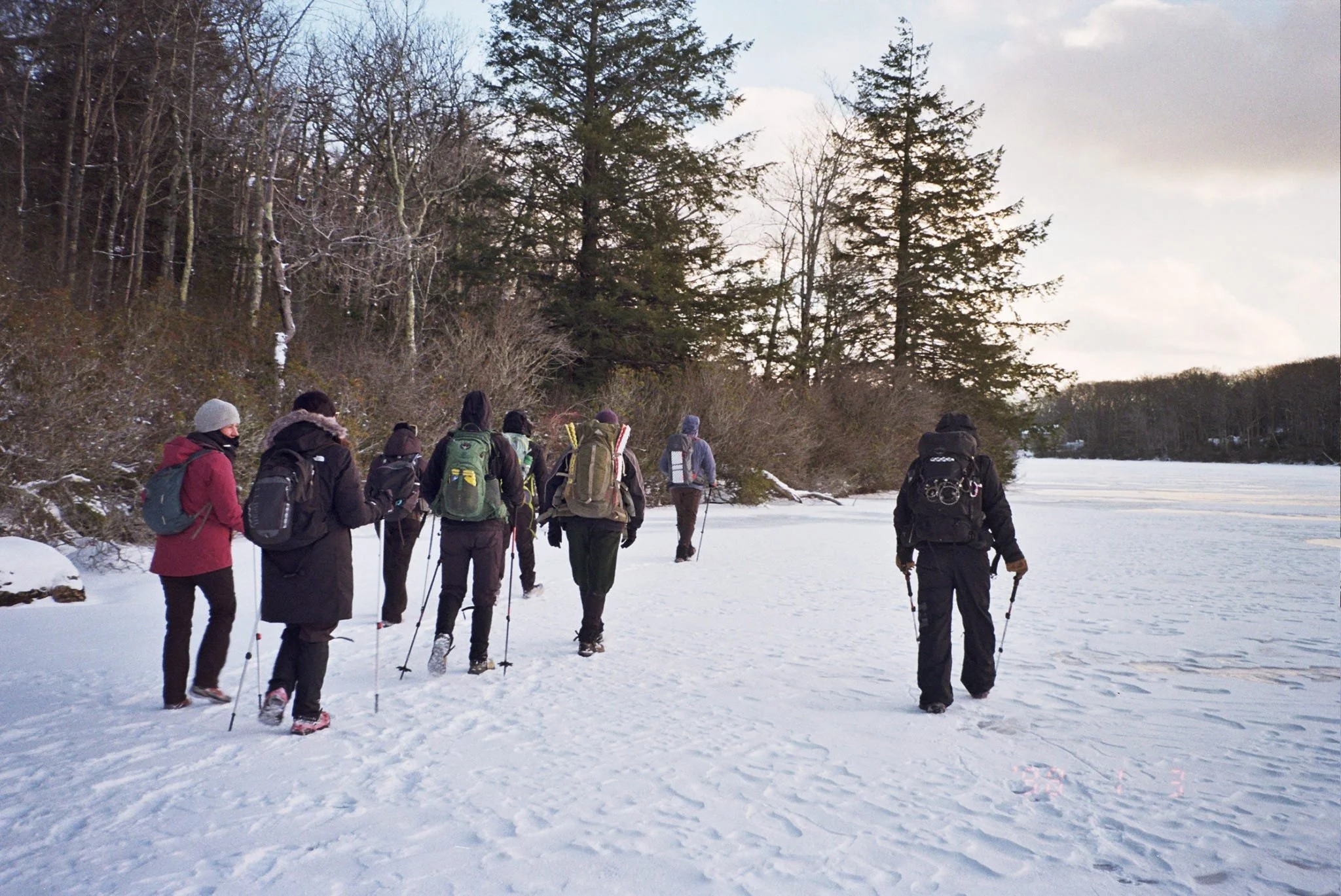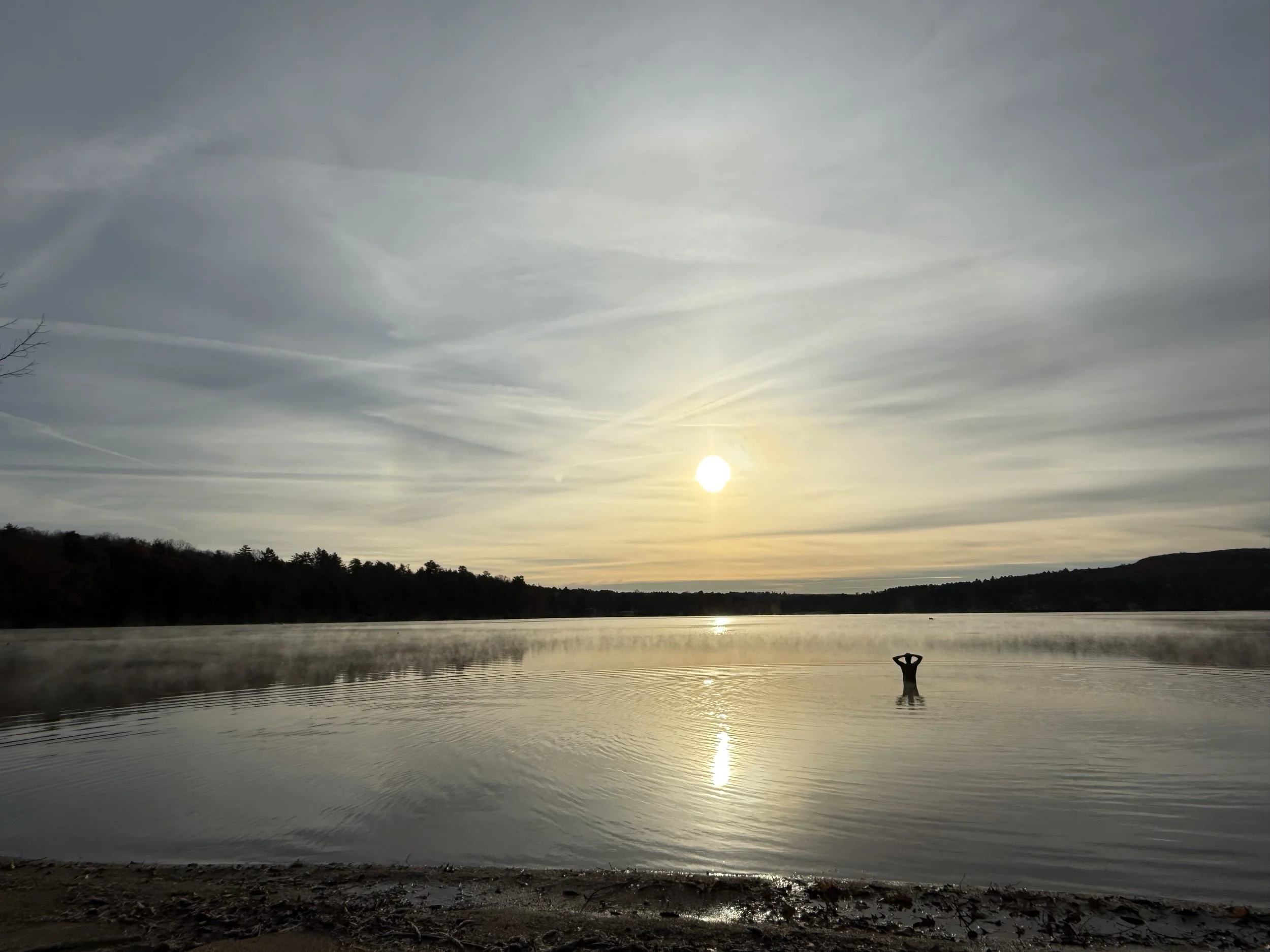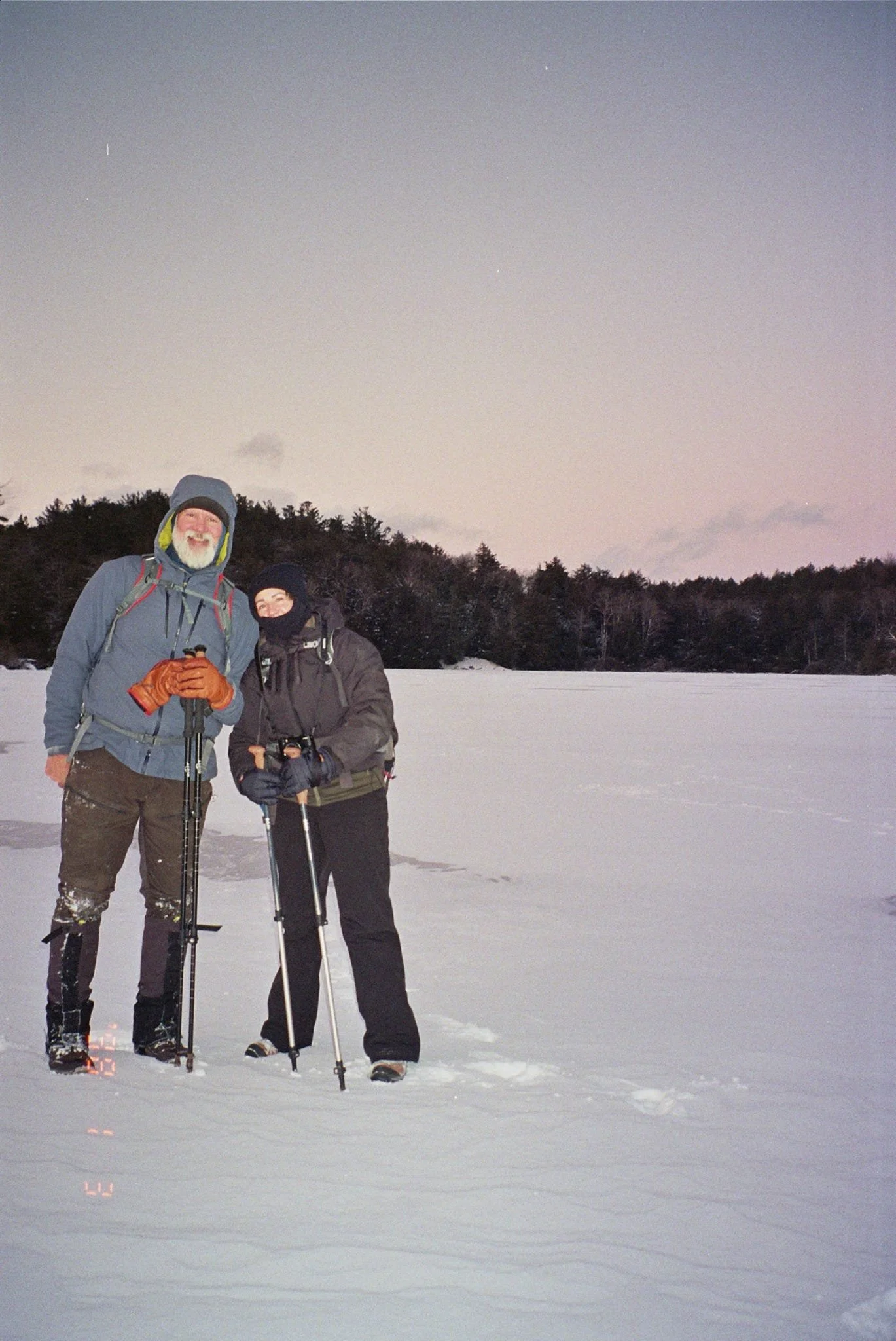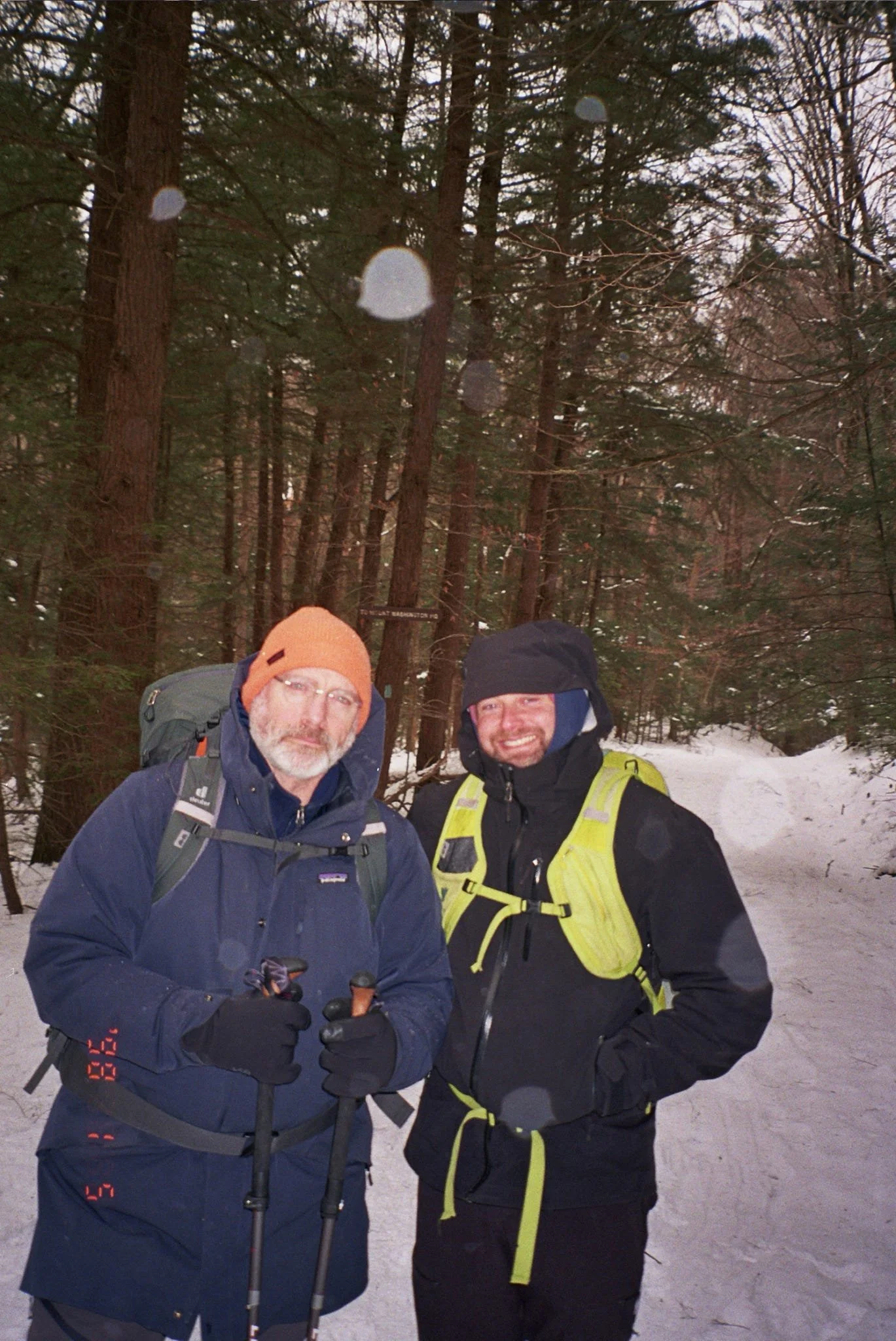Spending Time Outside, Together
Outdoor activities inspire us in various ways, and this elevation is often increased when experiences are shared. In a recent review, scientists surmise that contact with nature not only positively impacts our physiological health but can also improve mood and a tangible sense of meaning connection. The feeling of being part of something larger than oneself directly impacts perception, mood, and even longevity. The data show that when individuals feel part of something larger than themselves, symptoms of anxiety, depression, and stress are reduced while feelings of happiness and positivity increase. Harkening to Maslow’s hierarchy of needs, an individual’s self-actualization is accentuated in a greater context beyond just ‘self’, and this is a critical component of the evolutionary path of growth.
These conclusions are no surprise. We are sensitive creatures, affected by the power of belonging. Many experience feelings and emotions such as wonder and awe in nature and this can increase through interconnectedness. Furthermore, when striving for goals, accomplishments, and milestones outdoors, we are motivated when with friends and peers. Watching shooting stars, sharing a challenging multi-pitch climb, noticing a whale breach, or hearing coyotes in the night. These experiences are powerful and can amplify our tangible sense of being in the world. It’s the memories we make that generate meaning in our lives—in and of connection.
RESOURCE HIGHLIGHTS
-Studies reveal more and more that it’s not just “nice” to get outside, it’s a component of a healthy lifestyle
-Community and connection play a part in our longevity
-Structure is great, but be spontaneous - flexibility is good for the brain
-Don’t be afraid to live happily ever after
AR crew enjoying a winter cold plunge in the Berkshires
Being alone in nature is hugely gratifying as well. There are many tales of solo athletes who thrive on the time alone, but the data on group dynamics is truly fascinating. Studies find groups can experience significant transformation, both individually and as a team in the wilds. Adventure activities create a profound context for awareness, communication, and integration. When we reach the peak of a challenging two-day adventure to share a breathtaking view, or we have a meaningful connection with friends in the surf at sunset, we tap into presence and communion. We are reminded of the reality that we are not alone. When it comes to mental health and longevity, relationships play a huge role. Community is key.
Adventure, Mental Health, and Connection
Studies show that isolation is a significant factor when it comes to mental health struggles, including substance use and abuse, alcohol addiction, and other unhealthy or problematic behaviors. Researchers have studied solitude for years, but following the pandemic, isolation and the impact it has on mental health is now of greater concern. We are social creatures by nature who need connection and camaraderie. Social connection is a foundational aspect of mental health and our overall well-being.
“From psychological theories to recent research, there is significant evidence that social support and feeling connected can help people maintain a healthy body mass index, control blood sugars, improve cancer survival, decrease cardiovascular mortality, decrease depressive symptoms, mitigate posttraumatic stress disorder symptoms, and improve overall mental health. The opposite of connection, social isolation, has a negative effect on health and can increase depressive symptoms as well as mortality.”—Jessica Martino, etc.
It is part of the human experience to be in community—we need each other. When we place this awareness in the context of adventure activities, the potential positive outcomes grow exponentially. If we want to go hiking, we often ask a friend, and this goes for snowboarding, skiing, surfing, paddleboarding, biking, camping, climbing, kayaking, and so on. In fact, many sports outside call for camaraderie and support as best practice. And it’s not just for a physical spotter—in this line of thinking, we are talking about a mental health spotter, too. We can hold each other accountable, with compassion and love. Safety in numbers takes on a whole new meaning.
Adventure experiences in nature foster depth in relationships and increase our sense of belonging and responsibility to and for one another. Whether on belay, holding the stick in a raft, shooting video on a wave, or holding the map and compass, together, we’re better.
AR founder Tim Walsh with training participant and founder of Camp Soberfest, Breezy Nowlan
Adventure and Mental Health
While many of us tend to think the harder we push, grind, or work, work, work, the “better” we are, the reality is, when we carve out time unplugged for connection outdoors, we are filling our proverbial cups in many ways. We do not have to save the awe-inspiring moments for the annual vacation to Acadia or Yellowstone. The reality is that adventure has a place in our daily lives. It’s a mindset—a way of life. The idea is to naturally integrate the practices intentionally and make space for conscious connection. Adventure time, consistently. So, how do we do this?
Creating Space for Adventure
Mental health is mainstream now. And it’s not just about the mind; we now know the body keeps the score. Good sleep, exercise, balanced nutrition, mindfulness, and connection are but a few components. These are some of the elements that go into our daily wellness. What about adventure? Is it a core component of our well-being? Recent studies reveal that adventure is actually a more relevant factor in mental and physical health than previously understood. One study performed during the pandemic explored this in detail, finding that those engaging in adventure sports saw significant positive outcomes. This was specific to the pandemic years but an important overall note: “participants also explained how ‘adventure-based mindsets’ (e.g., resilience, focusing on controllable elements, humility) were protective strategies they used to limit the ill-being impacts of COVID-19 restrictions,” and hence apply to adversity overall.
“This study highlights the importance of looking beyond adventure benefits strictly related to risk, challenge, or competence, such as the important role of adventure communities, social connections, and connections to nature afforded by adventure. It also suggests that future research should further explore a range of ways through which adventure recreation may support psychological well-being, the necessary conditions to develop these psychological benefits, and how these attributes might transfer to other life domains.” —Patrick Boudreau, etc.
AR Consulting Clinical Director, Peter Lazar, LCSW + AR Executive Director, Josh Flaherty, LCSW
Adventure Outside, Together
To frame adventure in the context of day-to-day life we start with regular habits and behaviors. If we’re indoors, staring at the phone or computer, jumping from zoom to zoom, spacing out on TikTok, scrolling through surfaces, or just generally feeling disconnected and disjointed, our ability to find connection may be diminished. The first step is to plan an outing or adventure and schedule it into our daily lives, just as we would prioritize any other health-related activity. We schedule the dentist, eye doctor, yoga, and green drinks. Therefore, we do the same with our time outside, with self-awareness. We set the stage for physical and mental health and wellness, creating the possibility for perspective, connection, and joy. Consistency breeds self-esteem.
In addition to the apparent benefits of spending time with others moving our bodies, relationships and social connections are significant for many markers of health in aging populations. According to another study, researchers found that spending time in nature has direct psychological, emotional, and physical benefits. Scientists from Penn State, the National Open University of Taiwan, and Lunghwa University of Science and Technology, Taiwan, have shown that fostering social connections around nature-based activities may be linked to improved health and quality of life among elders. Bingo and karaoke are great and all, but nature adds extra oomph.
"We have conducted research on square dancing and karaoke, both of which are common activities for elders in Asia…Forest bathing, is unique in that it is closely tied to hiking, strolling or sitting in nature in which many elders engage across the globe. If leisure-service providers facilitate exposure to nature and help participants build a sense of community around those experiences, then elders could live, not only healthier, but richer and more meaningful lives."—John Dattilo, Professor of Recreation, Park and Tourism management at Penn State & co-author of this research
No matter what age we are, we can live an adventurous lifestyle. In fact, it’s essential that we stay active, curious, and flexible. Experiences in nature are a perfect backdrop. You get the idea. We just have to get out there.
How to Incorporate Adventure into Daily Life
Basic disciplines help us to carve out the space needed to incorporate adventure and will serve us through the years. The idea is to cultivate healthy, sometimes new, habits to experience increased vitality and longevity. Here are some tips:
Schedule your adventure time. Prioritize your schedule, well-being, and time to feel truly connected and unplugged from the digital grind. Schedule the adventures, large and small. This being said, this is not talking about over-scheduling every waking minute; it’s about prioritizing our mental health and well-being. When we treat this time as a part of our basic needs, we remind ourselves that it is important and that we are important. From daily moments outside in the sunshine to bigger expedition-based travel, goals can be simple and complex as we evolve. This can be as simple as a thirty-minute trail walk with teammates on Mondays at 11 AM.
Share the adventure. Connection outside goes a long way. Surfers, paddlers, climbers, hikers, swimmers, SUP folks, runners—many of these activities can be done outdoors, while others require safety, support, and commitment. We cheer each other on, challenge our skill sets, and celebrate our triumphs. Also, friends and peers can help hold us accountable, so planning activities together goes a long way. This benefits our friends and us hugely. Not only that, but you actually increase your potential life span by exercising with friends outside. This research found increased cognitive capacity and potential for longevity through the buddy approach.
Stay open to spontaneity. Yes, be consistent, but/and it’s important to allow flexibility into the practice as well. An adventure mindset fosters a willingness to explore unknown terrain and adapt to new surroundings and experiences. If a friend suddenly asks you to head out to catch a swell, go for it. When an aging parent is feeling a bit lonely, ask them to join you on a walk. According to a study conducted a few years ago, those who engage in awe-inspiring activities, including spontaneous ones, can exhibit greater life satisfaction. So, stay fluid.
Be accountable. One of the easiest ways to reap the benefits of adventure is consistency and accountability goes a long way. Friends can help here, too! Creating plans with another can help ensure we stay on track and keep our commitment. Hold yourselves to the plan. Discipline for the win. Sharing the anticipation, the gear, the tent—whatever works for you to feel connected is great.
Whatever method we choose, the commitment to time outside, together, benefits us in many ways. Now, more than ever, we have an opportunity to foster connection and community for our well-being on all levels. And perhaps more importantly, untether from tech. Outside, together.
SOURCES
MHA 2023
Melanie Rudd 1, Kathleen D Vohs, Jennifer Aaker Psychol Sci. 2012 Oct 1;23(10):1130-6. “Awe expands people's perception of time, alters decision making, and enhances well-being”
Gregory N. Bratman, Christopher B. Anderson, SCIENCE ADVANCES 24 Jul 2019 Vol 5, Issue 7 “Nature and mental health: An ecosystem service perspective”
Jessica Martino, Jennifer Pegg, and Elizabeth Pegg Frates, AM J Lifestyle Med 2017 Nov-Dec; 11(6): 466–475. “The Connection Prescription: Using the Power of Social Interactions and the Deep Desire for Connectedness to Empower Health and Wellness
Patrick Boudreau,a,b,∗ Susan Houge Mackenzie,a,1 and Ken Hodgeb Psychol Sport Exerc. 2022 Sep; 62: 102245.. doi: 10.1016/j.psychsport.2022.102245 PMCID: PMC9212858 “Adventure-based mindsets helped maintain psychological well-being during COVID-19”
Liang-Chih Chang, John Dattilo, Fei-Hsin Huang. “Relationships of Social Support and Activity Attachment with Purpose in Life among Older Forest Bathers: A Mediated Model.” Leisure Sciences, 2023;
Koki Nagata a, Kenji Tsunoda b, Yuya Fujii c, Takashi Jindo d, Tomohiro Okura d Archives of Gerontology and GeriatricsVolume 107, April 2023, 10490 “Impact of exercising alone and exercising with others on the risk of cognitive impairment among older Japanese adults”




